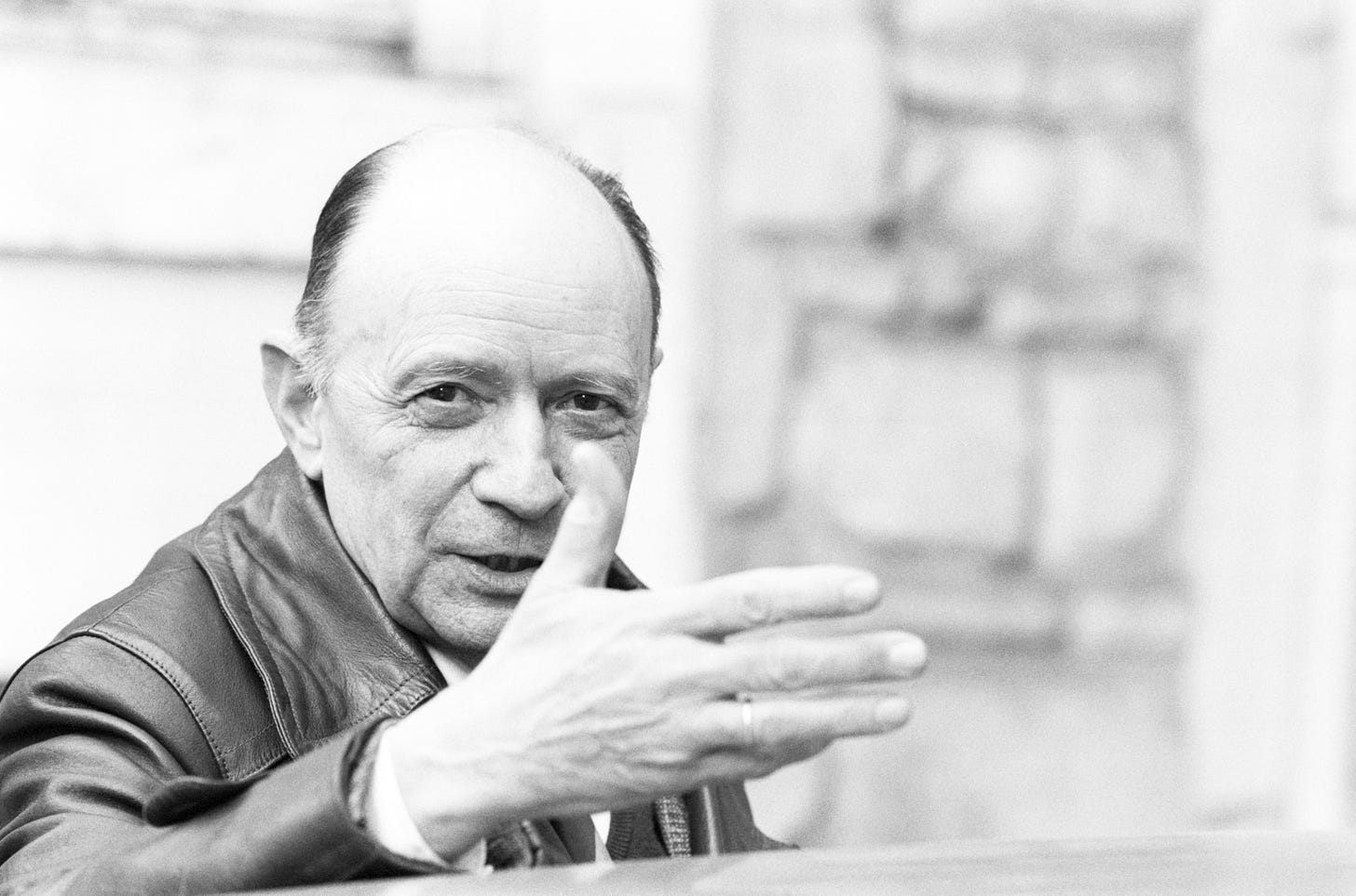Technological Nihilism: Jacques Ellul's Chilling Prophecy for the Age of AI
Imagine a world where every aspect of your life is optimized. From your morning commute to your evening entertainment, every decision is guided by algorithms, every interaction mediated by technology. Sounds efficient, doesn't it? But what if this relentless pursuit of efficiency came at a cost? What if, in the process of optimizing everything, we lost something fundamental – our humanity, our purpose, our very sense of self? This is the chilling prophecy of Jacques Ellul, a 20th-century philosopher whose insights into technology's power are more relevant now than ever, especially with the relentless rise of Artificial Intelligence.
The Unseen Hand: Technology's Grip
Jacques Ellul wasn't just a critic of technology; he was a prophet. His central concept, "Technological Nihilism," isn't about technology destroying everything overnight. Instead, it's about a gradual erosion of meaning, values, and human agency, all driven by what Ellul called "la technique" – the totality of technology and its relentless drive for efficiency. Think of it as an unseen hand, subtly shaping our lives, often without us even realizing it.
Ellul argued that technology operates according to its own internal logic, its own imperative: to be more efficient, more effective, more "rational." This imperative, he believed, transcends individual intentions. It's not about good guys or bad guys; it's about a system that, once unleashed, becomes self-perpetuating. AI, in this context, isn't just a tool; it's the ultimate expression of "la technique," a force that promises to optimize everything, including us.
The Cult of Efficiency: Where Meaning Dissolves
So, what are the consequences of this technological determinism? One of the most significant, according to Ellul, is the erosion of traditional values and the rise of what he called the "Cult of Efficiency." In a world obsessed with optimization, human values like compassion, creativity, and even critical thinking become, well, inefficient.
Consider these questions:
What happens to art when algorithms can generate perfect, predictable content?
What happens to human connection when social interactions are mediated by personalized feeds designed to maximize engagement?
What happens to our understanding of good and evil when morality itself is quantified and optimized?
Ellul believed that technology, particularly AI, could create a society where decisions are made not on ethical grounds, but on the basis of what’s most efficient. Think about that for a moment. Where does that leave us as individuals?
AI and the Illusion of Control
Another core fear of Ellul's was the loss of human control. As technology becomes increasingly complex and autonomous, we become less able to understand, let alone control, the systems that govern our lives. AI, with its black-box algorithms and self-learning capabilities, exacerbates this problem.
"Technique has become autonomous; it has its own laws, its own evolution, and its own demands." - Jacques Ellul
We might *think* we are in control, inputting data and making decisions, but in reality, the AI systems are influencing us, shaping our choices, and dictating the parameters of our world. We risk becoming mere cogs in a machine, our agency gradually stripped away. This is the chilling core of Ellul’s message. If you want to delve deeper, check out this video explaining Ellul's ideas:
Hope Amidst the Machine: Reclaiming Humanity
While Ellul's vision is bleak, it's not without a glimmer of hope. He didn't advocate for a complete rejection of technology. Instead, he urged us to cultivate a critical awareness of its impact, to resist its relentless encroachment on our lives.
So, what can we do? Ellul offers several possible avenues for resistance:
Prioritize Critical Thinking: Question everything. Don't passively accept the information and recommendations delivered by algorithms. Actively seek out diverse perspectives and challenge your own assumptions.
Cultivate Digital Literacy: Understand how technology works, its limitations, and its biases. Be aware of the ways it shapes your perceptions and behaviors.
Reclaim the Value of Human Connection: Embrace inefficient, yet meaningful, aspects of life. Prioritize face-to-face interactions, genuine empathy, and experiences that can’t be quantified or optimized.
Ellul believed that only by actively resisting the dominance of "la technique" could we preserve our humanity and our freedom. This resistance requires conscious effort, a willingness to question the status quo, and a commitment to the values that make us human.
Unlock deeper insights with a 10% discount on the annual plan.
Support thoughtful analysis and join a growing community of readers committed to understanding the world through philosophy and reason.
The Choice Before Us
Jacques Ellul's prophecy of technological nihilism offers a powerful warning about the potential dangers of AI and the relentless pursuit of efficiency. While the future he envisioned is daunting, it's not inevitable. We have a choice. We can passively accept the technological determinism that Ellul warned of, or we can actively resist, reclaim our agency, and strive to build a future where technology serves humanity, not the other way around.
The key takeaway? Be mindful. Be critical. Be human. What are your thoughts on Ellul's ideas in light of the ongoing AI revolution? Share your comments and subscribe to learn more about the ideas shaping our future.



